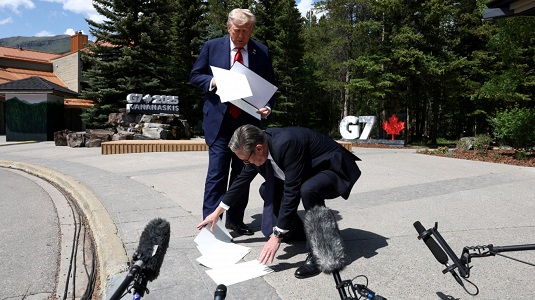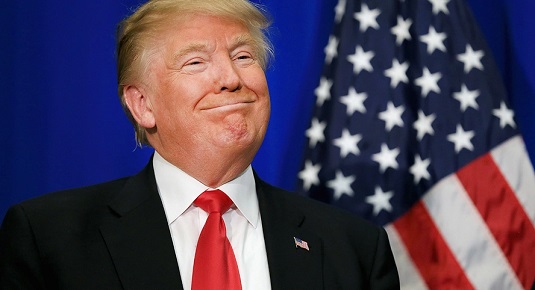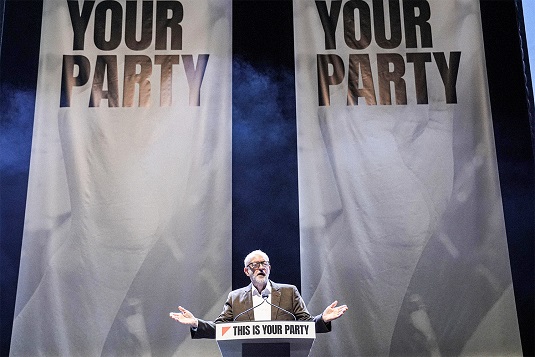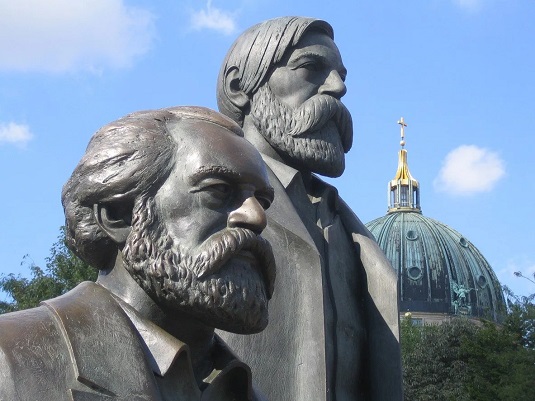
Paul Ovenden is someone we did not need to hear from again. He could have spent his time over Christmas reflecting on what cost him his job. But what disgraced former special advisor could resist the chance of redress in the pages of The Times? And at what has his spleen been vented at? The double whammy of cluelessness and cruelty that characterises the government he served? Don't be silly. The new bête noire is something called the "stakeholder state".
Picture the scene. A government is elected and wants to do things, but at every juncture they're besieged by lobbyists and campaigners. Some are from outside the state. But what is new is that within the institutions itself, even within a "neutral" civil service purposed to carry through the wishes of their political masters, there are networks of interest groups supporting and pushing issues they're exercised about. Particularly egregious are the quangos, those arms-length agencies of state that work to water down executive decisions they do not like. And where are the British people while this is going on? Nowhere. Voters don't get a look in. They're not the real stakeholders; a bloated establishment is. What they say goes, and for those inside government the weight of this machinery quickens a state-of-siege sensibility.
A couple of things about this. The stakeholder state stuff isn’t specific to Ovenden, or this government. Anyone familiar with politics memoirs will see shades of his complaints in former politicians' frustrations. It's also the inverse of the pluralist theory of politics. In the Marketplace of Ideas, different groups tussle for influence and policy. That is entirely what politics is, and parties have to build coalitions out of this to win and hold office. It's one of the first perspectives sixth form/FE students learn when studying politics. In other words, all he's stating is a banality.
The second point is this dovetails with every right wing, tin foil hat argument about the character of the state. Ovenden rightly says "It isn’t a grand conspiracy. There aren’t secret meetings or handshakes. Rather, it is a morbid symptom of a state that has got bigger and bigger while simultaneously and systematically emasculating itself." But the effect is the same. Nigel Farage's insincere whingeing about the liberal elite finds confirmation in these arguments. Liz Truss's ranting about the deep state and how it derailed her premiership is there, between Ovenden's lines. Michael Gove and Dominic Cummings's objections to "the blob" are echoed in the article's words.
What Ovenden doesn't talk about is how this form of the state came about. And, the truth of the matter is, this is what it has become after nearly 50 years of rebalancing labour and capital in the latter's favour. It was our old friend Margaret Thatcher who not only smashed and shackled the labour movement, but reconfigured the state away from a rough pyramid of clustered bureaucratic institutions to a looser collection of semi-autonomous bodies whose horizontal relationships were mediated by government-mandated markets. Business logic only works if there is competition. Meanwhile, the pre-existing expertise that existed within them was undermined and/or scrapped, and market thinking was granted the status of common sense. What happened to education, for example, in which local democracy, professional autonomy and independence, and the curriculum was done away with or reconfigured by government diktat typifies what Thatcher, the John Major government, and New Labour did to the state. But it wasn't just about creating new opportunities with a guaranteed return for (internationally uncompetitive) British capital. It was an issue of governance. In his memoir, John Major wrote with a sense of accomplishment about how shifting institutions to metric chasing and enforcing competition between departments to meet them improved the "customer experience". From a governance point of view, central government could just leave them to chase their tails. A case of winding them up and letting them go, while the relevant minister could spend their time on more interesting things outside of their brief.
Likewise, during the Thatcher years it became evident that government and governance could be outsourced. We're not talking just about the privatisations, but how the state became content to leave sectors to the province of "independent" regulators and watchdogs. This constellation became increasingly complex as charities and campaigning organisations engaged with and became embedded in a bewildering array of fields and sub-fields concerned with this or that aspect of social life. From here lobby outfits multiplied, to seemingly absurd outcomes where parts of the state lobby parts of the state. But crucially, what Thatcher enshrined and has been consolidated ever since is that government is the absolute sovereign, both as arbiter and the one point of the state that can unilaterally restructure everything else. Yet this appears to be a formality for those inside the system. Occasionally the Tories declare war on the quangos, but this same constellation structure with the executive at the centre persists. For anyone with a sense of history, its endurance as such might suggest an element of fit between contemporary politics and economics. It was all, after all, designed to be by the same sort of state functionaries now decrying it.
Ovenden finishes his article by saying it doesn't have to be like this. That is true. He talks about the power of government to change things and respond to democratic aspirations. And yet, this government, in case anyone needs reminding, has declared Palestinian solidarity protestors terrorists, wants to abolish jury trial for most court cases, is moving to shut down VPNs, and has legislated to officially scapegoat refugees and trans people. These were not in Labour's manifesto. It is true that Thatcher's restructuring of the state was minimising the democratic checks on capital, but - as it always has been - the main threat to liberty and democracy stems from the centre. Obviously, Ovenden cannot and will refuse to see it because he personifies this outlook.
Image Credit























